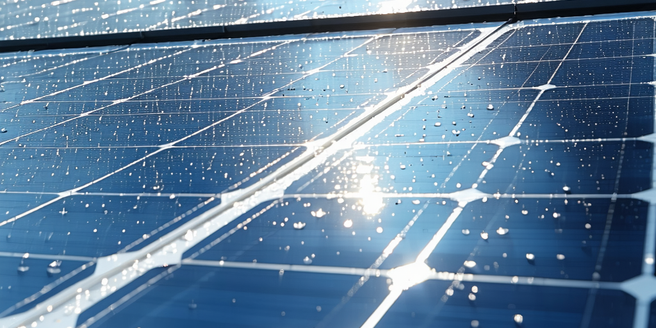
Understanding Humidity and Its Effects on Solar Panels
Humidity plays a crucial role in solar panel efficiency. High humidity levels can lead to condensation on the panels, reducing the amount of sunlight that reaches the photovoltaic cells. This reduction in light can lower energy production. Moreover, moisture can cause corrosion and damage to the panel components, affecting their longevity and performance. Solar panel systems in high humidity areas require careful maintenance to ensure they operate efficiently. Cleaning the panels and checking for moisture-related damages regularly can mitigate these issues. Understanding the specific humidity challenges can help in selecting the right type of panels and settings.
The Science Behind Humidity and Solar Energy Efficiency
The efficiency of solar panels is significantly influenced by environmental factors such as humidity. At a molecular level, water vapor in the atmosphere scatters sunlight, diffusing the direct sunlight that panels require for optimal performance. This scattering effect decreases the energy production capabilities of a solar panel system. Additionally, humidity can cause resistance in the electrical connections within a solar panel, further contributing to inefficiency. Understanding these scientific aspects is essential for optimizing solar energy systems. Researchers continue to study the impacts, seeking innovative solutions to mitigate negative effects and improve panel output in humid areas.
Optimal Humidity Levels for Maximum Solar Output
Achieving maximum solar output is contingent on maintaining optimal humidity levels. Typically, lower humidity levels are ideal as they ensure maximum sunlight penetration and reduce the chances of moisture-related degradation of the panels. In areas where humidity is unavoidable, it is critical to employ technology that compensates for reduced efficiency, such as anti-reflective coating and high-conduction wiring. Innovative cooling systems are also being developed to further enhance efficiency in such challenging conditions. Monitoring devices can also assess humidity levels, allowing prompt action to reduce adverse effects. Balancing these environmental factors ensures that solar systems are as productive as possible, optimizing energy generation.
Case Studies: Humidity Impact on Solar Performance
Several case studies have examined the impact of humidity on solar performance, revealing varied outcomes. In tropical regions, humidity was found to significantly reduce solar panel efficiency, primarily due to persistent cloud cover and increased condensation. However, in arid regions, where humidity levels fluctuate, solar performance remained relatively stable. This suggests that the local climate plays a pivotal role in the effectiveness of solar installations. These studies highlight the importance of tailoring solar solutions to the regional climate conditions. Through these cases, it becomes evident that innovative approaches and adaptive technologies are crucial for maximizing solar performance in high-humidity areas.
Technological Innovations to Combat Humidity Effects
To combat the effects of humidity on solar panels, several technological innovations are being developed. One promising avenue is the use of hydrophobic coatings that repel moisture, thus minimizing condensation on panel surfaces. Additionally, improved panel designs that allow for better airflow can help dissipate moisture quickly. Researchers are also investigating the integration of smart sensors to detect and respond to humidity changes in real-time. New materials, such as moisture-resistant photovoltaic cells, are under exploration, aiming to enhance durability and performance. These advancements, along with real-time monitoring systems, provide hope for mitigating humidity’s impact on solar energy, ensuring reliable and efficient power generation even in challenging environments.
Best Practices for Maintaining Solar Panels in Humid Areas
In humid areas, maintaining solar panels involves specific best practices to maximize longevity and efficiency. Regular cleaning is essential to remove any accumulated moisture that could cause damage. Using tools like soft brushes and mild detergents ensures that panels remain clean without abrasion. Scheduled inspections to check for signs of corrosion or electrical faults can prevent long-term issues. Implementing protective coatings and ensuring panels are mounted at an angle that facilitates water runoff are additional measures to combat humidity. By adhering to these practices, solar panel systems in humid regions can operate more effectively.
